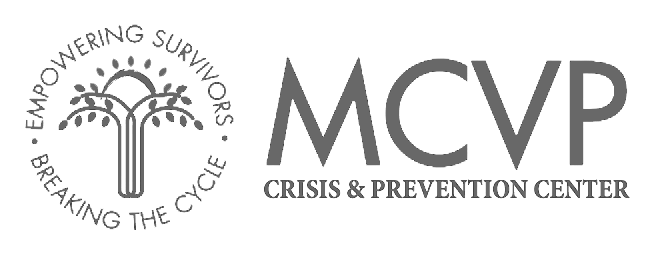GET HELP NOW
Amanda Grady Sexton, director of public affairs for the New Hampshire Coalition Against Domestic and Sexual Violence, said she was troubled that such private information had been compromised. She called for a full audit of information being submitted to the commission and a town-by-town review of checklists.
"This protection is vital to the safety of victims and their children, both those living inside and outside of emergency domestic violence shelters," she said. "The State of New Hampshire has an obligation to prioritize the safety of victims of crime and to uphold their statutory rights. Victims of crime should never have to choose between their safety and their constitutional right to vote."
The chief spokeswoman for the New Hampshire Coalition Against Domestic and Sexual Violence, Amanda Grady Sexton, stressed however that absentee ballot voting is just one option for victims with protective orders. She said it is the responsibility of the municipalities to ensure privacy for victims regardless of whether they vote in person or absentee.
She pointed out that under RSA 654:25, a voter's name and address can be kept off of the checklist if the voter presents to the supervisor of the checklist "a valid protective order," regardless of whether the voter appears at the polling place in person or votes absentee. The law requires "a separate list of voters, which shall be non-public," to be maintained by municipalities.
“This protection is vital to the safety of victims and their children, both those living inside and outside of emergency domestic violence shelters,” wrote Amanda Grady Sexton, director of the public affairs for the New Hampshire Coalition Against Domestic and Sexual Violence, in a statement released Tuesday.
Jessica Eskeland, public policy specialist for the coalition, said the group had not been aware before Tuesday’s announcement that some names were being included on public voting lists. “We call for a full audit of all checklists and information intended for submission to the Presidential Advisory Commission on Election Integrity to ensure that victims of crime who are guaranteed confidentiality under New Hampshire law are afforded the rights they are entitled to,” Sexton wrote. “Additionally, we call for a town-by-town manual review of all hand-marked checklists to ensure that victim privacy has adequately been maintained.”
New Hampshire's Division of Children, Youth and Families (DCYF) is charged with protecting our state’s children from abuse and neglect. However, we’ve seen the number of critical cases arise over the past few years and unfortunately, we’ve also seen too many children who were once under the care of DCYF become victims of abuse after leaving the system. Some valuable light has been shed on these issues, and we have made good progress in making DCYF reforms a priority, but there is a lot more work to do.
While it is clear that there are problems, the specific reasons why a child may fall through the cracks are less apparent. Addressing these problems presents a major challenge. The Commission to Review Child Abuse Fatalities, of which I am a member, was created to address deficiencies either through the legislative process or by making recommendations for internal changes within DCYF. The state also had an outside entity conduct a review of DCYF policies. It was through this review that a number of concerns became public.
Trauma specialist Linda Douglas told the law enforcement officers, lawmakers and college employees before her that how they respond to a disclosure of sexual assault can deeply affect a survivor’s healing process.
Making a survivor feel comfortable and not at fault is essential, especially when reporting is not the norm, she said at the 2nd Annual Halias Safety Symposium in Concord Friday. The reality is that the majority of sexual assault survivors never report. However, national estimates show that 1 in 5 women and 1 in 16 men are sexually assaulted while in college.
“Categorizing a sexual image of a child as ‘pornography’ rather than ‘abuse’ trivializes the experiences of child victims. Changing the title of this law helps remind us that those who produce images of child sexual abuse are creating a permanent record of their crime, and that the child is victimized each time these images are shared. It’s important that we recognize this heinous crime for what it really is – child sexual abuse,” said Amanda Grady Sexton, director of public affairs at the New Hampshire Coalition Against Domestic and Sexual Violence.
Schools in Connecticut, Rhode Island, and two prominent New Hampshire institutions have all made headlines, not only for the sexual assault of students, but also for the gross mishandling of these cases by the administrations at the schools.
Two weeks ago, New Hampshire Attorney General Gordon MacDonald announced that his office would launch an investigation into the conduct of teachers and administrators at the prestigious St. Paul’s School in Concord. Over the past several years, many stories have emerged of sexual conquest “games” that involved seniors preying on underclassmen, accusations of rape, and a recently released report from the school that identified at least 13 credible, decades-old allegations of sexual misconduct against students by faculty and staff. |
Archives
June 2024
Categories |
Our Supporting Partners
The 12 member programs of the New Hampshire Coalition Against Domestic and Sexual Violence provide services regardless of gender,age, health status (including HIV-positive), physical, mental or emotional ability, sexual orientation, gender identity/expression, socio-economic status, race, national origin, immigration status or religious or political affiliation.
Funding for this website was provided by The Corporate Fund.
New Hampshire Coalition Against Domestic and Sexual Violence
PO Box 353, Concord, NH 03302-0353
(603) 224-8893
New Hampshire Coalition Against Domestic and Sexual Violence
PO Box 353, Concord, NH 03302-0353
(603) 224-8893
NH web design by Harbour Light Strategic Marketing

 RSS Feed
RSS Feed












